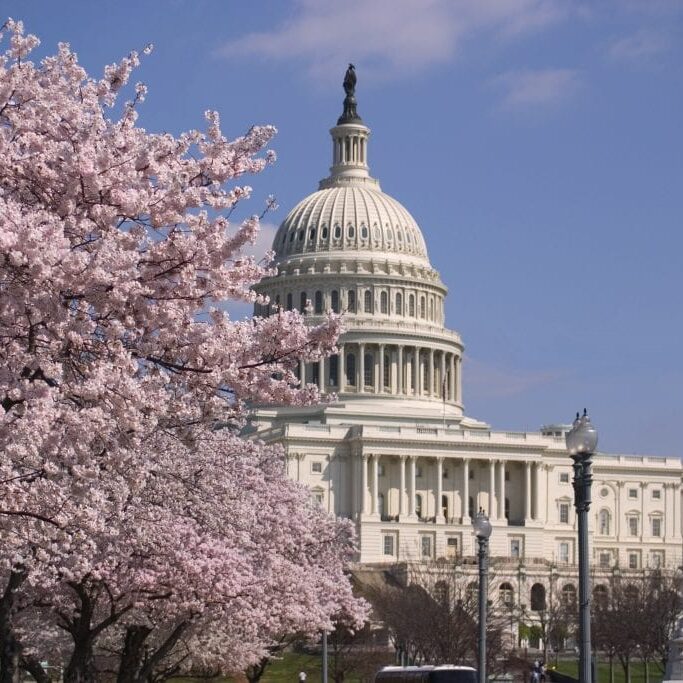Insights < BACK TO ALL INSIGHTS
Recap of RAWA House Subcommittee Hearing and What It Means for iGaming
Recap of RAWA House Subcommittee Hearing and What It Means for iGaming
By: Ifrah Law
The House Subcommittee on Crime, Terrorism, Homeland Security, and Investigations held a hearing last week to consider bill HR 707, the “Restoration of America’s Wire Act,” or RAWA. The proposed bill would prohibit most types of online gambling, whether or not they have been legalized and regulated by any state. The bill was drafted in response to 2011 Department of Justice opinion letter stating that the federal Wire Act law only restricts sports betting operations, and does not apply to other types of gambling. Internet gaming opponents drafted RAWA to extend the Wire Act to prohibit all types of gambling, rather than just sports betting.
The hearing was well attended by stakeholders in the online gaming industry, many of whom are at risk for losing a substantial investment of time and money in the regulated i-gaming markets of Delaware, Nevada, and New Jersey if RAWA becomes law.
The subcommittee members’ opening remarks displayed a range of views on online gambling. Chairman Bob Goodlatte (R-VA) stated outright that he is opposed to Internet gambling, asserting that it leads to money laundering, bankruptcy, and suicide. Other subcommittee members appeared to view Internet gambling more neutrally or even favorably, stating that this is an issue of states’ rights, as gambling is an area traditionally left to the states to decide.
When the invited witnesses offered their testimony, the initial statements heavily favored RAWA. Professor John Warren Kindt from the University of Illinois School of Law opined that Internet gambling is impossible to regulate and that it will destabilize Wall Street and international markets. Les Bernal, national director of the Stop Predatory Gambling Foundation, was equally aggressive in his position, stating that online games are designed to be predatory, and that it is the federal government’s responsibility to step in to protect its citizens. Michael Fagan, adjunct professor of the Washington University School of Law, stated that the DOJ’s opinion that the Wire Act only applies to sports betting was a strained interpretation of the law, and that the Wire Act was intended to apply to both sports and non-sports betting.
Some balance was introduced by Andrew Moylan, Executive Director of R Street, who strongly argued that RAWA would be dangerous precedent which substitutes the judgment of the federal government for that of the states. Setting aside the issue of internet gaming specifically, Mr. Moylan noted that it is problematic to say that anything that happens over the internet constitutes an interstate transaction which should be subject it to the federal government’s oversight as it would subject such a broad range of activity to the federal government’s jurisdiction. The final witness, Parry Aftab, executive director of Wired Safety, provided reasoned testimony that unregulated offshore gambling websites present a serious threat to citizens, whereas the regulated i-gaming industry has strong consumer protection measures built in.
Notably missing from the panel of invited witnesses was any legislator or regulator from a state which has actually passed and implemented online gaming laws. Representatives from New Jersey, Delaware, and Nevada would have been best-positioned to comment on issues such as the efficacy of geoblocking and identity verification measures, the impact of the law on the states’ economies, and the impact that RAWA would have on the burgeoning markets.
Without that essential perspective, the comments of some committee members and witnesses at times seemed out of touch with the regulated online gaming industry as it has been implemented in the U.S., and even out of touch with the state of current technology. For example, numerous comments were made asserting that it was impossible to restrict online gaming to states which have legalized it, despite the fact that geoblocking technology has been exceptionally effective in Nevada, Delaware, and New Jersey. Congressman Jason Chaffetz (R-UT), who introduced the RAWA legislation, stated that he refused to believe that technology could create effective “fictitious borders” to keep other states’ igaming operations out of states that have not passed igaming legislation.
While pro-RAWA witnesses outnumbered those opposed to the bill, there is no doubt that the anti-RAWA advocates made more convincing and reasoned arguments. Whereas the pro-RAWA set spoke in hyperbole about doomsday scenarios and the limitations of technology, the anti-RAWA witnesses drew on the effectiveness of existing restrictions implemented by regulated igaming states, and the fundamental way in which the federal government is overstepping its bounds in attempting to interfere with powers reserved to the states.
The subcommittee took no action on RAWA during the hearing, so it remains to be seen whether the bill will be amended in any way or submitted for a vote. We hope that the voices of reason rose above the rhetoric and made an impact on those subcommittee members who attended with an open mind, and that RAWA fails to become law.





